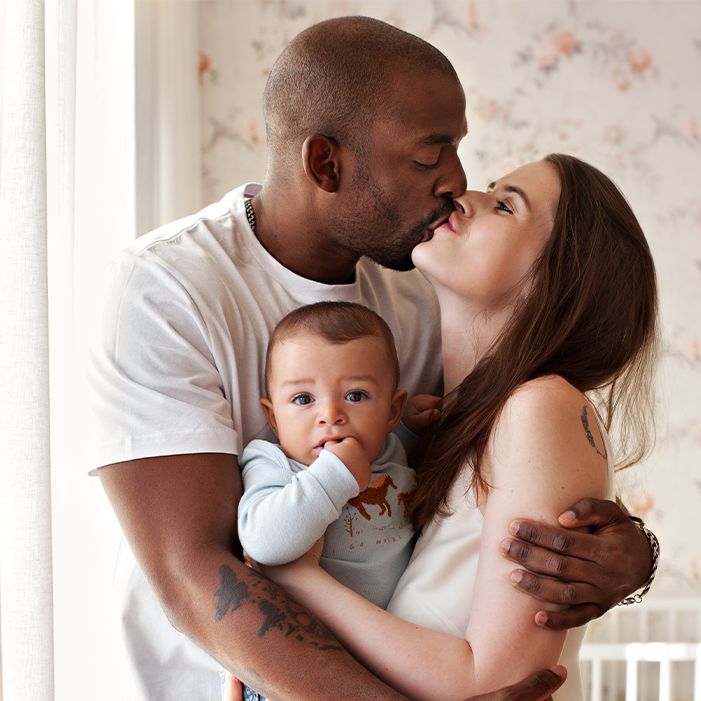
Frequently Asked Questions
General Questions
Who is Rabbi Gadi Levy?
Rabbi Gadi Levy is a highly experienced mohel and a rabbi. He has performed over 2,000+ circumcisions. He is trained in both religious and medical circumcision practices, ensuring the safest, professional, and meaningful experience for all families.
How is circumcision performed?
Infant circumcision is a precise medical procedure performed with care and expertise. The process involves five key steps:
1. Separation – A thin probe is used to gently separate the foreskin from the glans.
2. Measurement & Preparation – The appropriate amount of foreskin is determined and carefully secured with a hemostat.
3. Safety Shield Application – A protective shield is placed to safeguard the glans.
4. Excision – The foreskin is expertly removed.
5. Bandaging & Healing – A specialized dressing with clotting agents is applied to promote healing.
This approach ensures a safe and efficient procedure, prioritizing the baby’s comfort and well-being.
What makes an in-home circumcision different from a hospital procedure?
An in-home circumcision provides a calm, private, and comfortable environment for your baby. Unlike hospitals, which may use general anesthesia or extended stays, in-home services are quicker, personal, and tailored to your family’s needs and traditions.
Is this procedure available to families of all backgrounds and beliefs?
Yes, we serve all families, regardless of religious or cultural background. Whether you are seeking circumcision for religious, cultural, or medical reasons, the procedure is performed with the highest level of care and professionalism.
What method do you use for circumcision?
Rabbi Levy primarily uses the Mogen Clamp, a quick and precise method that minimizes discomfort and promotes faster healing.
What is the cost of your in-home circumcision?
Our in-home circumcision procedure is $1,850. This includes a private consultation with Rabbi Gadi Levy, the procedure performed in the comfort of your home, all necessary supplies, detailed aftercare instructions, and ongoing support throughout the healing process.
Preparation Questions
At what age should my baby be circumcised?
The ideal time for circumcision is between 1-4 weeks old, but Rabbi Levy can perform the procedure up to 6 months of age in most cases.
How do I prepare my baby for the circumcision?
- Feed your baby on schedule, as needed.
- Have a clean, calm, well-lit table or counter ready.
- Three diapers and wipes nearby.
- 3 Stretchy XL swaddle blankets.
- With older babies (3 months pain relief is recommended. (such as acetaminophen).
Will my baby feel pain?
Rabbi Levy applies a numbing agent and uses a quick, precise technique to minimize discomfort. The procedure itself lasts under a minute, and most babies do cry a little. However the procedure is so fast and they are back in their mothers soothing arms straight after.
Can parents watch the procedure?
Yes, parents are encouraged to be present for comfort and reassurance. Rabbi Levy is a strong believer in transparency and parents being informed exactly about what is going on. Some mothers choose to observe, while others prefer to step away briefly.
Aftercare & Healing
What should I expect in the first few days after circumcision?
First 3 days.
- A natural white scab develops around the wound.
- A small amount of blood may be seen in the diaper.
- A yellowish film on the site is part of normal healing.
Last 7 days
- Mild redness and swelling are going down.
Healing is typically complete within 10 days.
How do I care for my baby’s circumcision site?
- Apply healing cream at each diaper change to prevent sticking.
- Use soft, damp cloths instead of baby wipes to clean the area.
Avoid full baths for the first 48 hours—sponge baths are recommended.
When should I be concerned about healing?
- Excessive bleeding (more than a few drops).
- Signs of infection (pus, foul odor, increasing redness).
- Difficulty urinating (no wet diaper within 12 hours).
Other Considerations
What are the benefits of circumcision?
Circumcision is often performed for religious, cultural, and medical reasons. Benefits may include:
- Lower risk of urinary tract infections (UTIs) in infancy.
- Reduced risk of sexually transmitted infections later in life.
- Simplified hygiene and lower risk of penile infections.
Are there any risks involved?
Like any medical procedure, circumcision carries small risks such as bleeding, infection, or minor irregularities. However, complications are extremely rare, especially when performed by an experienced mohel like Rabbi Levy.
How much does the circumcision cost?
Our service starts at $1,500 and may vary based on location and specific requests. For exact pricing and availability, please contact us directly. Insurance may not cover in-home circumcisions, so we recommend checking with your provider.
Can family and friends attend the circumcision?
Yes! Many families choose to invite close relatives or friends to witness the circumcision, especially for religious ceremonies like a Bris Milah (Jewish ritual circumcision). However, this is entirely optional.
What if I choose not to circumcise my baby?
Circumcision is a personal decision. If you decide not to circumcise, proper hygiene practices are essential as your child grows. Rabbi Levy is happy to answer any questions to help guide your decision.
How do I book an in-home circumcision?
You can schedule a circumcision by booking a consultation call on our website. It is recommended to book early, especially for newborns, to secure a convenient appointment time.
